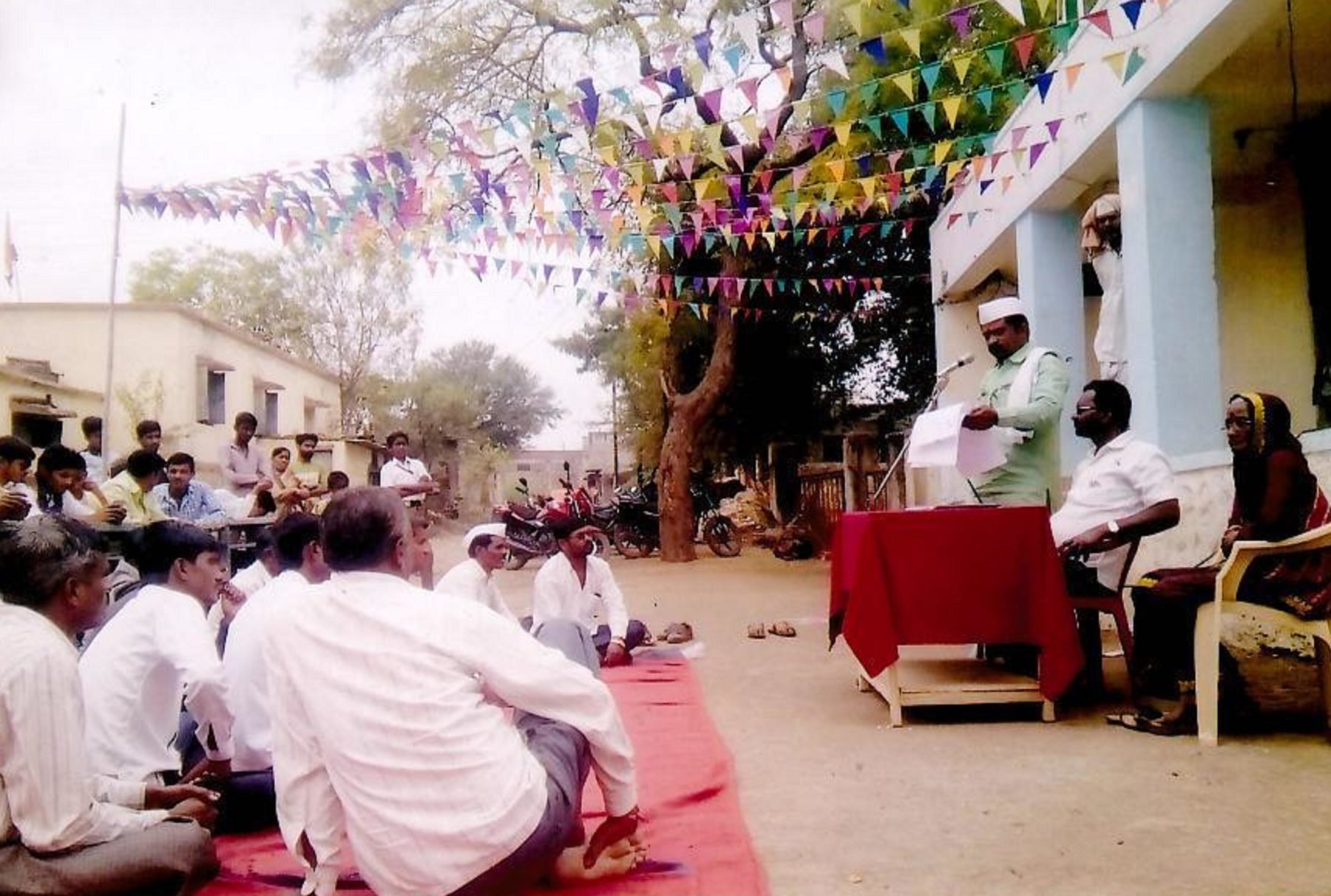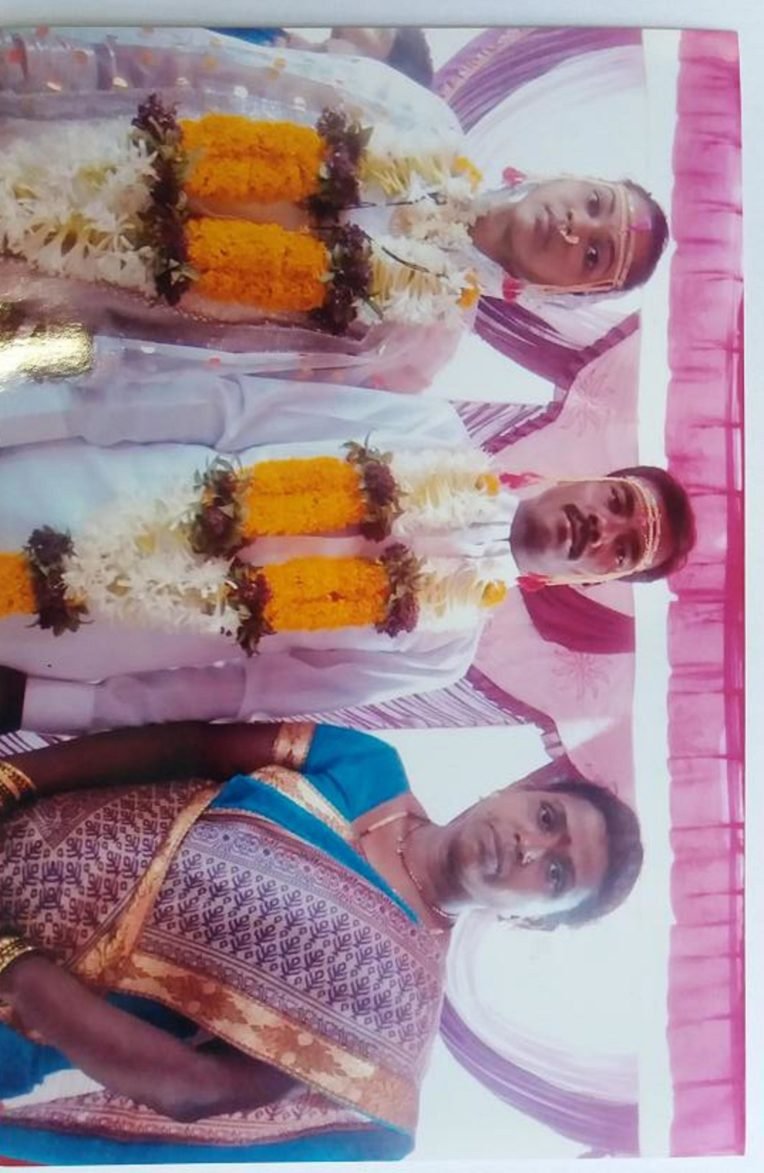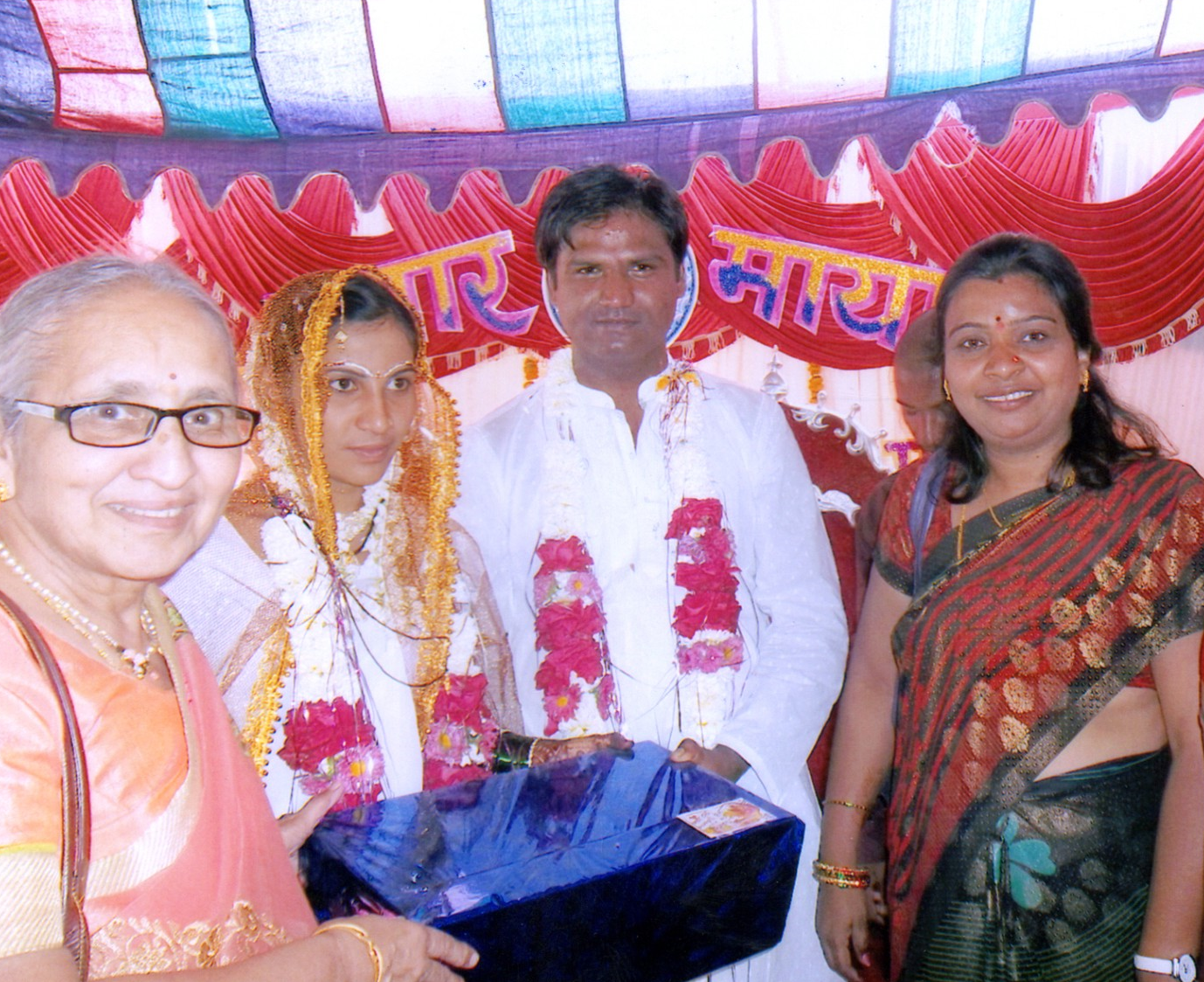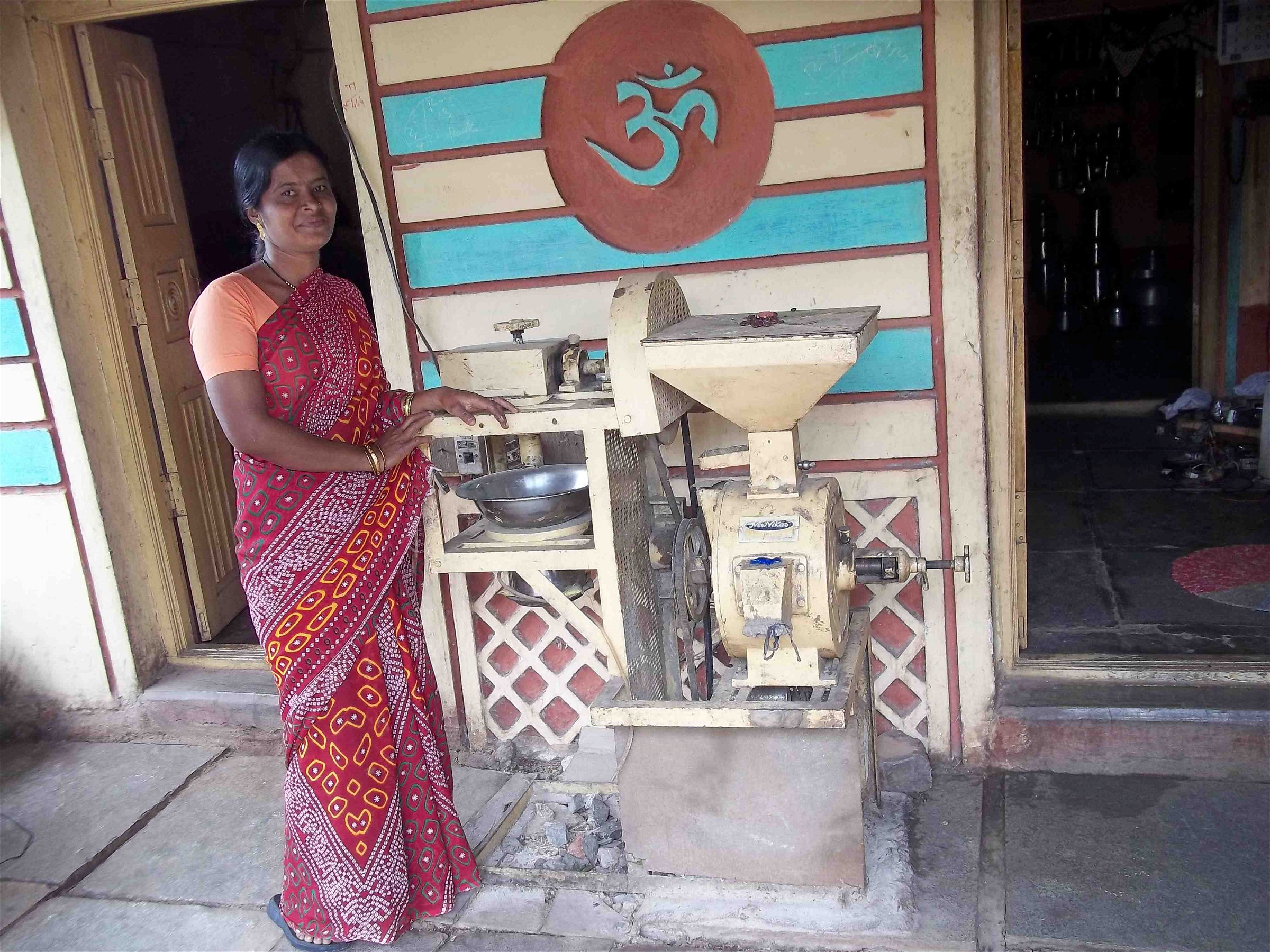Project: Anti-Dowry Education Project
Location: Latur Taluka District, Maharashtra
Category: Education
Education Discourages Dowry Marriages
In 2017, Adarsh Mahila Griha Udyog (AMGU) continued to use their IDS funding to educate women and their children in the dangers associated with dowry marriages. Some of the funds were used to help women in dowry marriages get legal information and help if they are abused. The nonprofit has been supported by IDS and engaged in this education for the past several years.
When a marriage includes a dowry, the wife’s family is required to pay a fee to the husband’s family before the marriage can take place. In this sense, the wife either is or represents property; if she is perceived as inadequate in the eyes of the husband’s family, violence may result.
AMGU’s education program consisted of visits from professionals (e.g., government officials, lawyers, police officers, and social workers) who met with parents (primarily mothers) and their adolescent sons and daughters to explain and discuss the consequences of dowry marriages. Later, AMGU staff met separately with the parents and teenagers to share feelings about what they’d learned.
During 2017, there were nine recorded marriages in the villages served by AMGU, and all were without dowry. (Since the beginning of this project in 2016, there have been 24 marriages without dowry.) According to project manager Chandrakala Bhargaw, there were few marriages in 2017 because of a prolonged drought. Surveys taken by AMGU in these villages reveal that the vast majority of teenagers say they want to marry without dowry—in fact, many of those surveyed have already committed themselves in writing to a non-dowry marriage.
The drought is thought to be the cause of an increase in farmer suicides in the area. Widows became farmers, and AMGU supported them with training and spiritual help. As a result, some of the widows became members of village government and others became nursery school teachers.
AMGU’s accomplishments in 2017 were consistent with those in 2016 and 2015; because the project had been so successful, it made sense to continue the established educational program with few changes last year. One recent change was to involve area police to a greater degree than in past years. Police were asked to track the amount of reported domestic violence in 2016 and 2017 with the expectation that a decrease in frequency would be seen over time. Unfortunately, AMGU was not able to obtain the police data.
In 2017, the last year of IDS funding for this project, AMGU spread the word to other NGOs in the Latur region. AMGU intends to continue offering non-dowry education in the future without a grant from IDS.
IDS Coordinator: Jerry Gosenpud
Project Manager: Chandrakala Bhargaw
–2017 IDS annual report
This project was based on the expectation that educating and training prospective marriage partners in the dangers of dowry-arranged marriages would reduce both the number of marriages with dowry and the frequency of domestic violence among married couples.
Dowries are believed to have an impact on domestic violence in India. When a dowry is involved in a marriage, the wife’s and husband’s families agree on a fee (money or property) that the wife’s family pays to the husband’s as the couple marries. Obviously, this means that material greed can permeate the spirit of the marital arrangement.
In addition, the prospective wife herself can be seen by both families as property given from the wife’s family to the husband’s. In the past, this has meant that the wife’s family transfers ownership of the wife to the husband’s family and, in many cases, the wife loses contact with her family of origin. Recently, this has begun to change as, in an increasing number of cases, the wife’s family maintains contact with their married daughter.
When the wife is treated as property by the husband’s family, and if she or the accompanying monetary “gift” disappoints his family, the new family may retaliate against the wife, sometimes violently.

In the summer of 2015, Adarsh Mahila Griha Udyog (AMGU), with a grant from IDS, began funding an anti-dowry education project. In the first year, half the villages in Latur Taluka received the full treatment: lectures by experts, the police, and government officials, plus training in small (10 per group) homogeneous-by-gender groups of teenagers. Two hundred teenagers participated in such groups.
The other half of the AMGU villages received only the lectures and no small-group training. After the first eight months of implementation, it was reported that of those in the full treatment groups, thirteen couples agreed to marry without a dowry.
In the project’s second year, all villages served by AMGU received the full treatment (lectures plus small-group training). As of May 2017, there have been seven couples who announced that they would marry without dowry, and two non-dowry weddings have taken place over the past 12 months.
At first glance, this looks like a decrease, but there are reasons for the lower number of non-dowry marriages this year, and results strongly suggest that the project continues to be very successful.

Weddings are expensive in India, and Indian families seek to host fancy weddings. Last year was a drought year for Latur farmers, and that resulted in few weddings. This year brought rain, and more marriages are being announced. Furthermore, all announced marriages have been non-dowry marriages. In the twenty villages served by AMGU since September 2016, there have been NO marriages WITH dowry.
Earlier in this article, we reported that evidence suggests that dowry marriages can lead to domestic violence. AMGU has stressed this danger in conferences with local police and in meetings among teenagers. As of this writing, AMGU has collected evidence showing a reduction in domestic violence in the villages it serves. Though promising, this finding needs to be confirmed with police-originated statistics.
IDS Coordinator: Jerry Gosenpud
Project Manager: Chandrakala Bhargaw
–2016 IDS annual report
Dowries are illegal in India, but the law is ignored in much of rural India. When a dowry is involved in a marriage, the wife’s and the husband’s families agree on a fee (money or property) that the wife’s family pays to the husband’s. This means that material greed can easily be part of the transaction. In addition, the prospective wife is herself considered property and is given from her family to her husband’s.

Traditionally (although this is changing), this means that the wife now “belongs” to her new family and is effectively abandoned by the one that raised her. This can have terrible consequences for the wife. If she or the property that accompanied her disappoints the new family, they feel entitled to “take it out” on her, sometimes violently (Laws and son preference in India: A reality check by Kirti Singh, 2013).
In July 2015, Adarsh Mahila Griha Udyog (AMGU), with a grant from IDS, began a project designed to eliminate marriages arranged with dowries. After just eight months, AMGU could claim success. As of March 25, 2016, thirteen young couples in the project announced marriage plans without dowries, and 95% of the project’s 200 other participants took an oath not to marry with a dowry.
This project was implemented in 20 villages in the economically poor district of Latur Taluka, part of Latur District in the Marathwada region of Maharashtra. Ten of the villages received complete interventions (training groups and lectures), while young participants in the other 10 villages attended the lectures only.
The anti-dowry project was managed by AMGU’s female self-help groups (SHGs). Young people in 10 villages (100 females and 100 males) took part in homogeneous-by-gender training groups whose purpose was to learn about the dangerous consequences of marrying with a dowry. Another component of the intervention consisted of lectures by lawyers and government officials about the illegality of dowries as well as visits from, lectures by, and discussion with social workers focusing on the disadvantages and dangers of dowries.
This intervention succeeded so quickly for at least four reasons:
- Interventions were multi-faceted and comprehensive and sought perspective from the client.
- Male groups were exposed to the dangers and undesirable aspects of dowries—this was especially important.
- One of the first young women to reject dowry proposals has turned into a much-respected role model, and many of the village girls want to follow her example.
- AMGU has been working with Latur Taluka villages for 40 years, and self-help groups have been in operation since 2000. SHGs have helped many emerge from poverty and many children to get a better education. AMGU is relied on and trusted, and is therefore influential. When AMGU attempted to influence these young people to reject dowries, they were receptive to the organization’s message and experience.
–2015 IDS annual report
Holistic Empowerment of Women

Adarsha Mahila Griha Udyog (AMGU) works for the holistic empowerment of women across their entire life span. With the help of financial support from IDS, AMGU offers vocational training and organizes social awareness programs about women’s issues, gender sensitization, and adolescence.
Topics such as domestic violence, child marriages, sexual harassment in the workplace, child abuse, and child labor are raised and addressed in women’s self-help groups. Since the program’s inception, AMGU has reached approximately 10,000 women through these groups.
With the help of Mahila Atyachar Niwaran Kendra in Latur, AMGU’s family counseling center addresses cases of atrocities against women. Cases include issues related to dowry, bigamy, and physical and mental torture. So far, 1035 out of 2490 cases have been successfully settled using this approach.
AMGU’s vocational training helps ensure the economic self-reliance of women who are in need and without economic support from other sources. After training, students practice such skills as: constructing bags of jute and leather; painting; creating hand and machine embroidery, ribbon work, and patchwork; and making soap, sauce, and jam. Because women earn their livelihood through their vocational skills, AMGU organizes exhibitions for the women to help them sell their handicrafts.
AMGU participates in a tree-planting program and supports a purified drinking water program. In addition, it established a kitchen garden program; the result was a reduction in cases of anemia because women were growing their own vegetables and including them in their daily diet.
Jidnyasa, a program focusing on life skills for adolescent girls and boys, was implemented by AMGU in the district of Latur. Students learn about adolescence, addictions, sex education, AIDS, and human trafficking. Since the beginning of the program, 5305 students at 38 schools and colleges have participated in Jidnyasa.
–2013 IDS annual report

